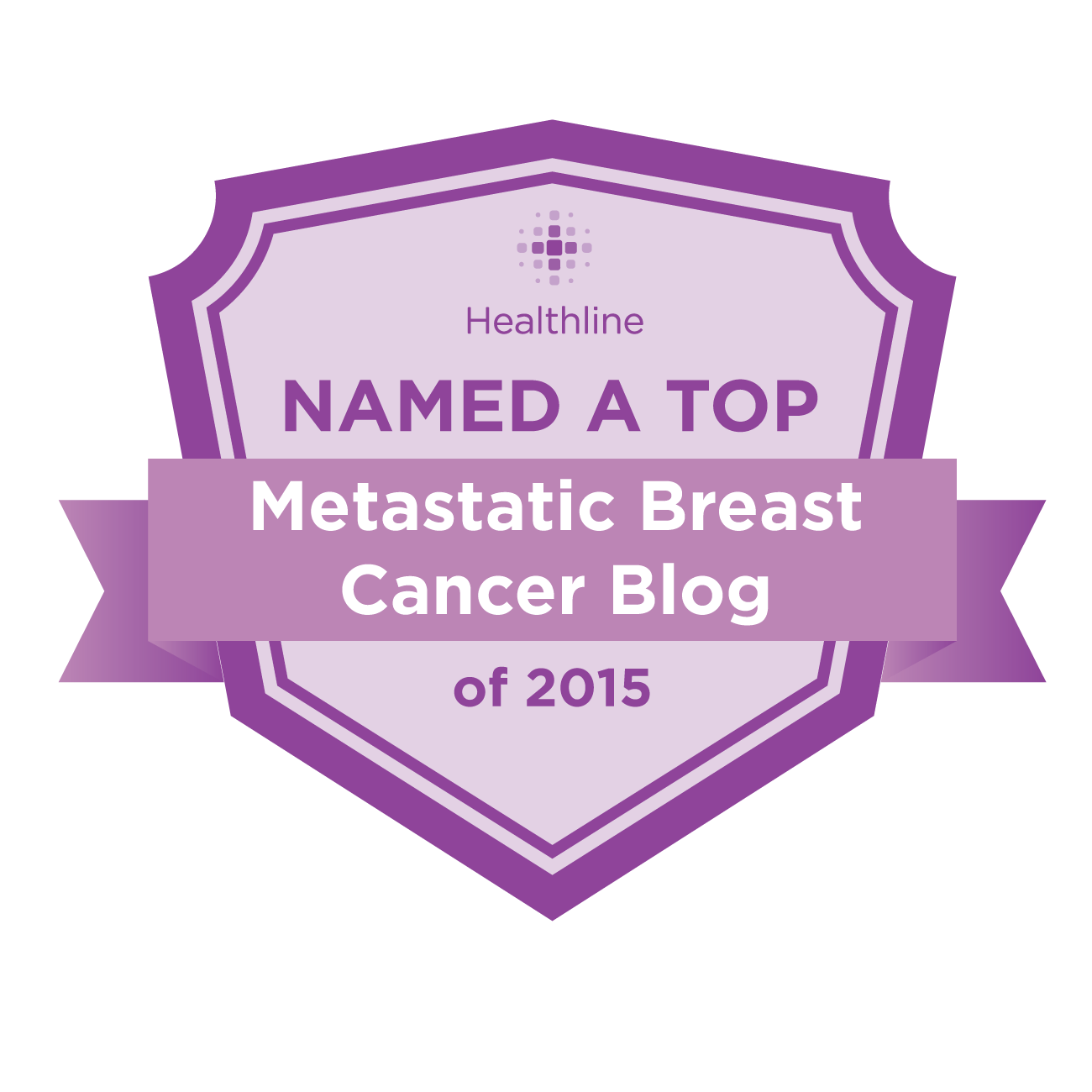Yesterday a new follower named Janelle commented that her mother had recently been diagnosed with metastatic breast cancer and she didn't know what to do to help her mom. Since Janelle posted a common question, here is my take on how to help someone you love when they've been given a diagnosis of advanced cancer.
Janelle, I am so sorry to read that your mom has advanced breast cancer. I imagine that everyone in your family is upset about this diagnosis. No doubt all of you are reacting in different ways.
Every person diagnosed with cancer has to find her own path on this journey. And those who care about them have to somehow allow themselves to let their loved one find their own way.
It's been my experience that no one can walk the cancer road with me unless they themselves have been diagnosed with cancer or another major illness. No one else really understands how I live with facing my own mortality on a daily basis. No one else grasps just how badly the treatment side effects can make me feel. And no one else can plumb the depths of my despair at my body's betrayal of me.
That said, there are things you can do to support your mother. If you live in the same town, you can driver her to appointments and bring her meals. You can visit, spending time just being with your mother. Or on a good day, you can take her out for a break from cancer to see a movie, go to a restaurant, or do something together that you know brings her joy.
You have to deal with your own issues too, whether that means talking with a good friend or family member, finding a support group for caregivers, or seeking counseling from a trained professional.
As a cancer patient, your mother has many resources available to her. I attend a support group that meets weekly at the hospital where I receive treatment. Although not everyone in this group has metastatic breast cancer, everyone has a diagnosis of advanced cancer and we help one another.
There is a
Gilda's Club in Seattle and I've been a regular at Friday yoga classes for many years now. Gilda's Clubs also offer many other classes and workshops and are found in many large US cities. In Seattle we also have
Cancer Lifeline, which provides a similar program.
I also belong to Club-Mets-BC, a listserv for women with metastatic breast cancer and their caregivers. You can find us at
http://www.acor.org; click on Mailing Lists at the top of the page, then browse alphabetically under "C" or look for us under Most Common Cancers or Women's Cancers. Ours is a closed, or private list, meaning you have to apply to join us. There is also
BC Mets, which is an open list, meaning anyone in the world can read any posts at any time.
Your family and friends may want to donate their money or time to breast cancer causes. I am partial to
METAvivor, which funds research exclusively into metastatic breast cancer, and the
Breast Cancer Research Foundation. I don't particularly think
Susan G Komen For The Cure does much for women with metastatic breast cancer, but they are the largest such charity in this arena. I stay away from all the pink ribbon marketing (check out
Think Before You Pink).
Your mother is on a tough road. It took me months to come to grips with my re-diagnosis at stage IV when I was 42 years old. The thing that helped most was writing an
ethical will. In this ancient Jewish practice I found insight into the values I cherished the most at a time when I thought I would die within a year. You don't have to be Jewish to write one.
And lastly, we say in our home that sometimes we take it one day at a time; sometimes one hour at a time; sometimes one minute at a time. When it's one minute at a time, that's when I eat a piece of dark chocolate (vitamin CH!), because I know that at least this one minute will be a good minute. It's a bit flippant and doesn't help too much when things are really bad. But I like chocolate, and if iI can concentrate on something other than cancer for one minute, that takes my mind off cancer for one minute.
I hope this helps.




























